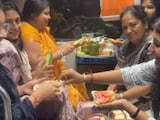LASIK is a laser eye surgery done to improve eyesight. People seeking LASIK must follow certain strict instructions to fasten the recovery and to also avoid any complications. What we eat can also significantly alter our eye surgery recovery. In this article, we discuss foods you should eat and avoid after a LASIK surgery.
Foods to eat after eye surgery:
Vitamins
Vitamins especially vitamin C are known for their benefits on our eyes' health. Consuming foods rich in vitamins help fasten your recovery. Vitamins can also reduce the risk of developing cataracts. They also help slowdown ageing of the eyes.
Here are some vitamin-rich foods you can add to your diet:
- Citrus fruits
- Red bell peppers
- Green leafy vegetables
- Milk
- Carrots
- Tomatoes
- Berries
Healthy fats
Healthy fats help the body in absorbing various nutrients. Although fats have a fat reputation, foods rich in healthy fats are essential for the body. They help the body by absorbing all the vitamins and other nutrients our food has to offer.
Here are some foods rich in healthy fats:
- Avocado
- Sweet potatoes
- Whole eggs
- Seeds
- Nuts
Protein
Protein-rich foods are known for their benefits on the body as well as the eyes. Eating a protein-rich diet helps better the health of your cells which further fastens recovery. Eyes are made up of veins, vessels, etc., and need protein to function and heal.
Here are the best protein-rich foods to add to your diet after eye surgery:
- Chicken (organic)
- Salmon
- Eggs
- Dairy products
- Nuts
- Seeds
Carbohydrates
This may be a surprise to many of you. Carbohydrates are also often looked down upon. However, carbs provide our body with sufficient energy and also promote healing in the body. However, be watchful of what car-rich foods you are eating.
Here are some healthy carbs to eat after a LASIK surgery:
- Quinoa
- Whole wheat
- Bananas
- Oats
- Buckwheat
Foods to avoid after eye surgery:
High-sugar foods
If you have recently gotten eye surgery or are planning to get one, we advise you to lower your sugar consumption. Eating foods high in sugar can cause a spike in your blood pressure.
Here are some common sugary foods you need to avoid:
- Packed juices
- Honey
- Healthier sugar alternatives (brown sugar, coconut sugar, etc.)
- Fruits with high-sugar
- Cakes, pastries, candies, etc.
Sodium-rich foods
Similar to sugary foods, foods high in sodium i.e. salt, can also poorly affect your blood pressure. Along with causing a spike in your blood pressure, salt can also cause various health abnormalities. These abnormalities later worsen your eyes' health.
Here are some sodium-rich foods you need to avoid post-surgery:
- Canned foods
- Preserved foods
- Ultra-processed foods (chips, etc.)
- Pickles
Fried food
Fried foods are abundant in fried oil which is unhealthy for all parts of your body. In addition to this, when you fry foods that may not essentially be unhealthy, the frying process strips them of all their nutrients. Making them unhealthy and essentially useless for the body.
Here are some common fried foods you need to avoid:
- Chips
- Pakoras
- Paranthas
- Samosa, etc.
Ultra-processed foods
Highly processed foods are abundant in trans fat, saturated fats, sodium, sugar, and other harmful components that may worsen your health. Processed foods require huge quantities of preservatives. These preservatives can also contribute to altering bp and other functions in the body which can further worsen your eyes health.
Here are some examples of ultra-processed foods you need to avoid:
- Chips
- Packed popcorn
- Fast foods (burgers, pizza, etc.)
- Packed biscuits, cookies, etc.
In conclusion, eating nutritional food can help fasten your eyes' recovery. Furthermore, eating foods rich in protein vitamins, and healthy fats help improve your eyes health. We also encourage you to speak to your doctor regarding other lifestyle-related restrictions and guidance.
Disclaimer: This content including advice provides generic information only. It is in no way a substitute for a qualified medical opinion. Always consult a specialist or your own doctor for more information. NDTV does not claim responsibility for this information.















